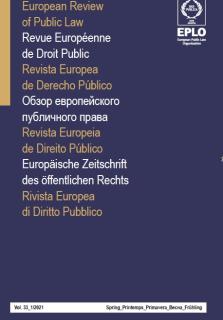
Common Constitutional Traditions Taken Seriously: Process Rights
Full professor of Administrative law, Bocconi University (Milan);
P.I. ERC research on the ‘Common core of European administrative laws’ (grant n. 694697)
The article analyzes the meaning and significance of the phrase “common constitutional traditions”, which is employed by the Treaty on the European Union. It does so in three ways. First, it explores the historical background, by considering the debate concerning commonality and diversity in Europe, particularly with regard to the thoughts of Montaigne and Montesquieu. As a second step the article discusses two distinctive views of legal traditions, that is to say static and dynamic views. Thirdly, the article discusses the importance of two traditions that show the interaction between the various systems of public law. One is an already recognized constitutional tradition, which is designated by the maxim audi alteram partem. Another is a tradition in the process of being recognized, which is designated by the maxim nemo tenetur se detegere or, alternatively, with the phrase “privilege against self-incrimination”.
L’article analyse le sens et la portée de l’expression “traditions constitutionnelles communes”, employée par le traité sur l’Union européenne. Il le fait de trois manières. Tout d’abord, il explore l’arrière-plan historique, en observant le débat sur la similarité et la diversité en Europe, notamment au regard des pensées de Montaigne et Montesquieu. Dans un deuxième temps, l’article discute de deux visions distinctes des traditions juridiques, à savoir les visions statiques et les visions dynamiques. Troisièmement, il discute de l’importance de deux traditions révélatrices de l’interaction entre les différents systèmes de droit public. L’une est une tradition constitutionnelle déjà reconnue, désignée par la maxime audi alteram partem. L’autre est une tradition en passe de l’être, désignée par le précepte nemo tenetur se detegere ou, alternativement, par la formule du “droit de ne pas témoigner contre soi-même”.
* This essay is the fruit of research undertaken on the “common core of administrative laws in Europe” (ERC advanced grant no. 694967). I wish to thank Sabino Cassese and Mario Comba for inviting me to join the ELI research on common constitutional traditions, as well as Mauro Bussani, for his comments on a first draft of this paper. I remain, of course, solely responsible for any errors or omissions.





















